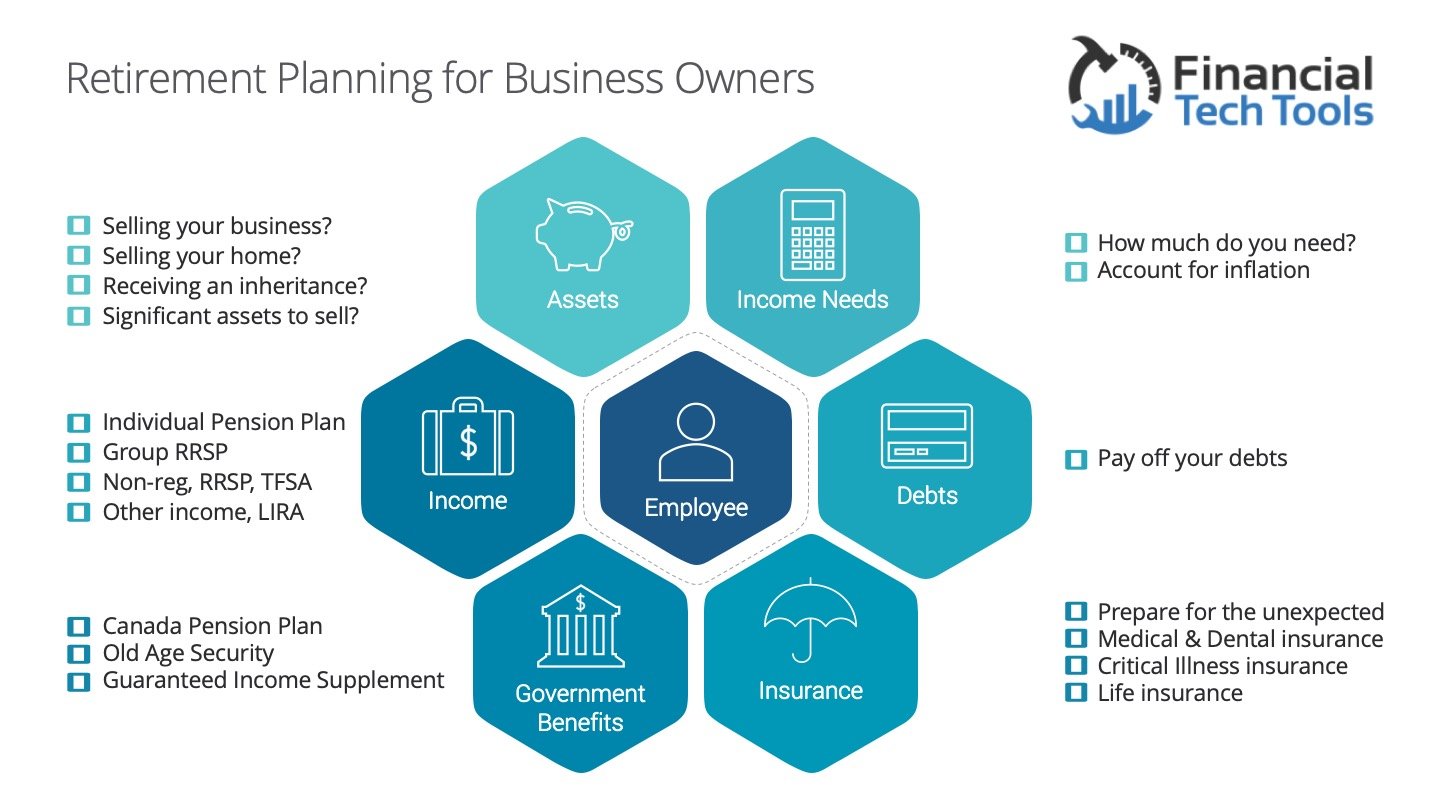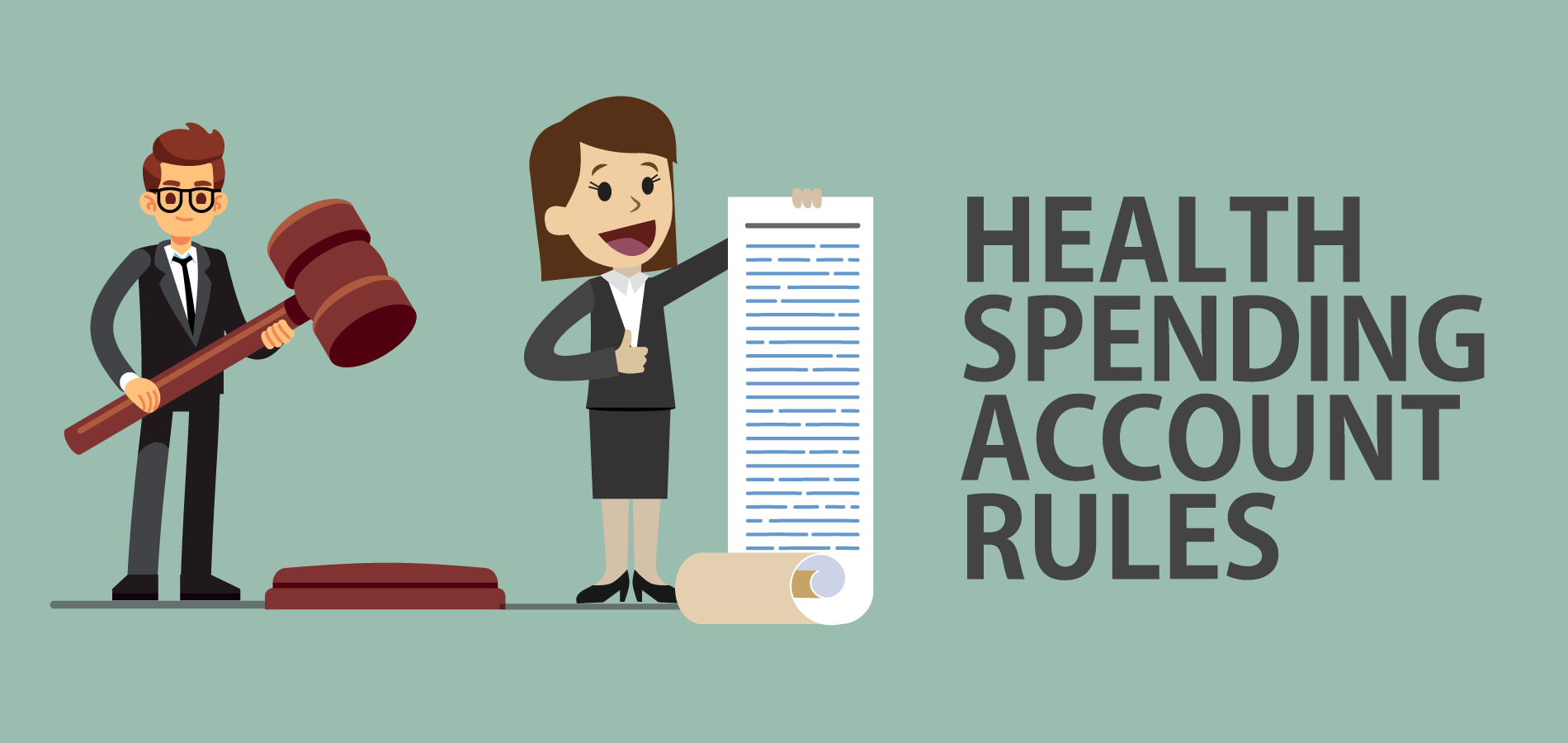As a business owner, one of the challenges that I face is learning how to balance between reinvesting into my business and setting money aside for personal savings. Since I no longer have an employer-sponsored pension plan and I know retirement will come eventually, it's important to have a retirement plan in place. Did you know that more than three-quarters of small business owners don't have retirement plans in place for themselves?*
This piece was created for an advisor to help business owners plan for retirement.

Income Needs
- Determine how much your client needs in retirement.
- Make sure you account for inflation in your calculations. (We have a simple calculator to help you figure this out)
Debts
- If your client has any debts, you should encourage them to pay off their debts as soon as they can and preferably before they retire.
Insurance
- As your clients age, their insurance needs change. Review your clients' insurance needs, in particular their medical and dental insurance- a lot of employers do not provide health plans to retirees.
- Review your clients life insurance, they may not necessarily need as much life insurance as when they had dependents and a mortgage, but their insurable needs have changed.
- Help your client prepare for the unexpected such as a critical illness or long term care.
Government Benefits
- Check what benefits are available for your client on retirement.
- Canada Pension Plan- help them decide when would be the ideal time to apply and receive CPP payment. Business owners also have a unique opportunity to control how much they contribute to CPP by deciding to pay salary or dividends. (Dividends don't trigger CPP contributions)
- Old Age Security- check pension amounts and see if there's a possibility of clawback.
- Guaranteed Income Supplement- if your client has a low income, they could apply for GIS.
Income
- Is your client an ideal candidate for an individual pension plan (IPP)? IPPs can provide higher contributions than would be permitted to an RRSP and the ability to create a lifelong pension.
- Is your clients' business a candidate for group RRSP or company pension plan? This a great way for a business owner to build retirement savings and provide benefits for the company too.
- Check if your clients are saving regularly towards retirement- in an RRSP, TFSA or non-registered. Since business owners can control how they get paid- salary or dividends, dividends are not considered eligible income to create RRSP contribution room, therefore you should have a conversation with your client to ensure they create the optimal mix to address their financial goals.
- Don't forget to check if there are any income sources. (ex. rental income, side hustle income, etc.)
Assets
- For business owners, the sale of the business can be part of their retirement nest egg. Therefore, one of your discussion points should include the valuation of the business and if they plan to sell the business to family, employees, partner or a third party and when do they plan on selling.
- Are your clients planning to use the sale of their home or other assets to fund their retirement?
- Will your clients be receiving an inheritance?
One other consideration that's not included in the checklist is divorce. This can be an uncomfortable question, however divorce among adults ages 50+ is on the rise and this can be financially devastating for both parties.
Financial Tech Tools helps financial advisors grow their business by providing professional websites, calculators and online marketing. Professional websites, content, email and social media marketing done by financial industry experts that have their CFP, CLU, CHS and EPC designations. With 25+ years of financial services experience, FinTech speaks "advisor", talk to them to help grow your business.
To learn more about how Financial Tech Tools can grow an advisory business, please don't hesitate to book a call.






